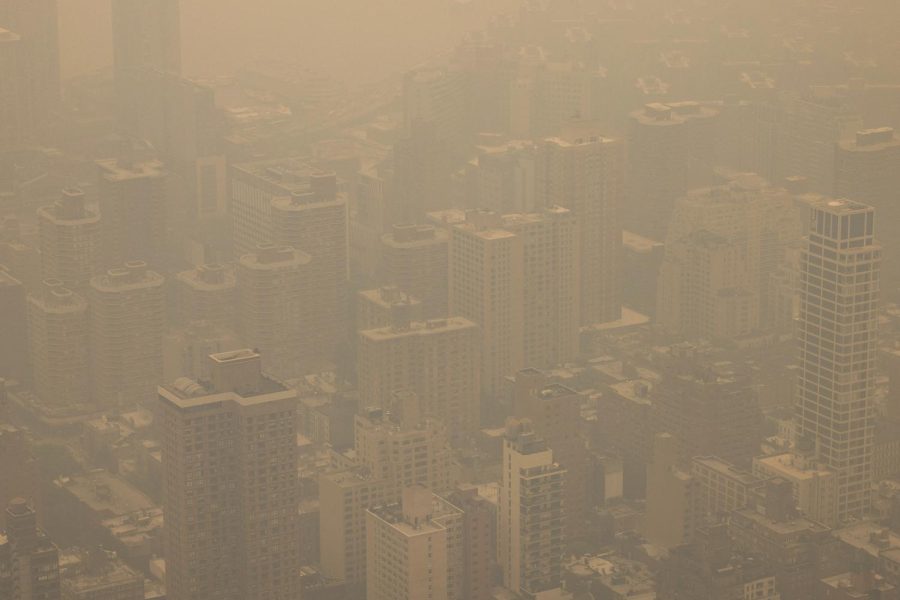Editorial | Recent poor air quality could be a warning sign for things to come
New York City is engulfed in haze seen from the Empire State Building observatory, June. 7, 2023, in New York.
June 13, 2023
There have been a number of photographs floating around the internet the last week of New York City shrouded in an eerie shade of orange. While Pittsburgh is not nearly as smog-cloaked as NYC, Pittsburgh is facing its own share of problems due to the shared grievance. If you are one of the few who haven’t been affected by the extra-noxious air quality in the last week or so, the Northeast and other cities in the eastern half of the United States are facing air quality issues due to Canadian wildfires. The issues have died down in the last few days, but the topic still remains prevalent.
It is wildfire season in Canada right now, and the smoke the U.S. is facing comes from the Quebec, Alberta and British Columbia areas. These fires are unique — having burned the largest area of Canadian land at this point in the wildfire season, at about 11.6 million acres. This is double the annual average of land burned total. It’s early in the season, and wildfires are only going to get worse as the season passes, with June, July and August being their heaviest months. These fires are linked to lightning strikes across Eastern Canada, but there is one key ingredient that is leading to these record-setting flames.
While the science connecting wildfires to climate change is miniscule and there is no immediate connection between these exact Canadian wildfires and climate change, there is one fact that is important to consider — climate change can lead to increased drought and extreme heat, all of which are desirable conditions for fires to spread at faster and increased rates. We’ve already begun to see how climate change is increasing and making natural disasters worse across the world. North America is next to face the dire consequences of our inaction to rectify the climate crisis, and we are unbelievably unprepared. The dangerous air quality that is burdening our nation is only one of the few after effects our country is experiencing. It is only going to get worse from here, and these flames aren’t even within our own borders.
We are entering into a world where natural disasters are becoming worse and climates are becoming more extreme. Data shows that droughts are decimating agriculture-dependent countries like Niger, fault lines are becoming more and more unstable like in Pakistan and coastal countries like Bangladesh are losing more and more of their land. The wildfires are only just beginning to worsen in North America, and we will soon face the repercussions of our inability to resolve this issue.
If Americans must have a signal identifying that the climate crisis has breached U.S. borders — let this be it. If we as a society do not move to slow the warming climate, the consequences will be dire. If you think the air quality, smog and flames are bad now, just wait. Unless we act swiftly, the effects of climate change will become irreversible.








